How To Get More Playing Time In Soccer – Complete Guide (2025)
If you’re wondering how to get more playing time in soccer – this is for you.
For aspiring soccer players, getting more playing time on the pitch is a common goal, and it takes more than just raw talent to achieve it.
Whether you’re a youth player, a high school athlete, or a member of a competitive adult league, the path to securing a spot in the starting lineup or receiving more minutes on the field is a journey that demands dedication, hard work, and a strategic approach.
In this article, we will explore the essential steps and strategies on how to get more playing time and earn your starting spot in soccer.
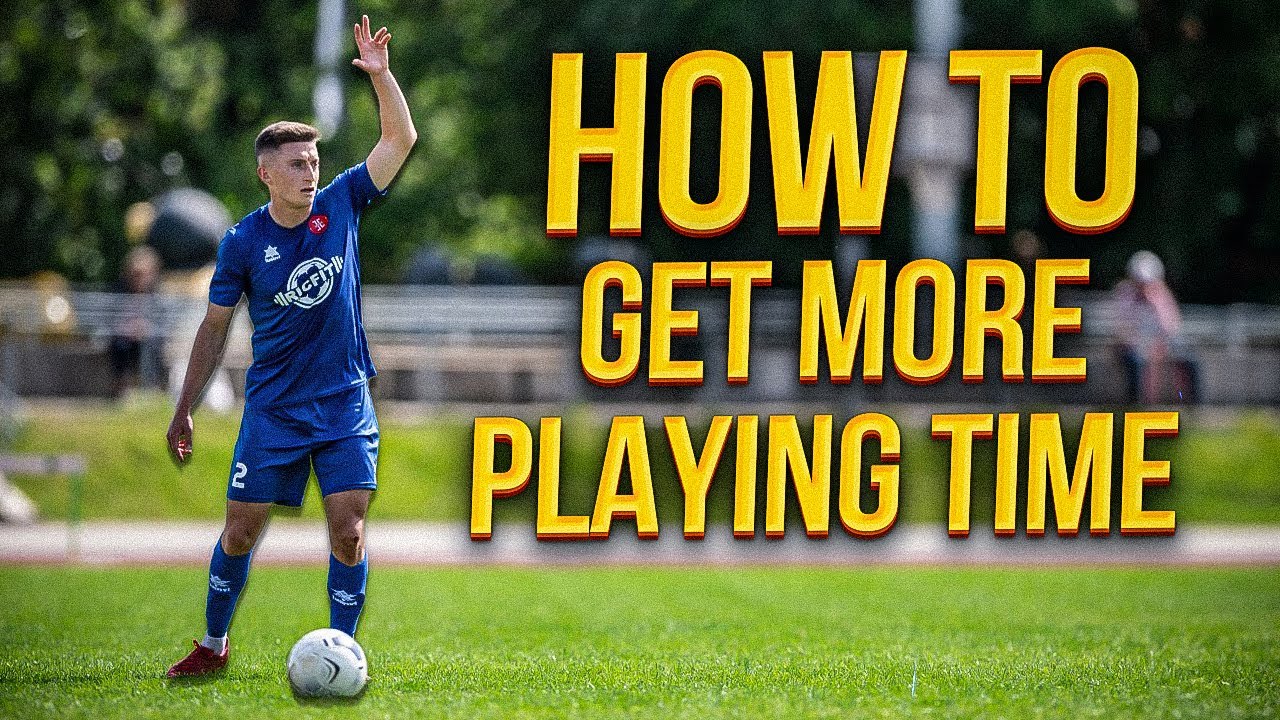
How To Get More Playing Time In Soccer
In this article, you can read through all 5 sections or skip ahead to the topics that are most important to you. Make sure to watch the video tutorials included and stick around until the end for a special free gift that is guaranteed to make you a better soccer player.
- How to get more playing time in soccer
- How to get more playing time (video)
- How to impress your coach in soccer
- How to get a starting position in soccer
- How to become a better soccer player, improve faster & achieve more!
I hope this article helps you understand how to get more playing time in soccer. Let’s go!

How To Get More Playing Time
If you’re looking to get more playing time in soccer, it’s essential to take a proactive approach to your development and demonstrate your commitment to the team.
One of the first steps is to open a line of communication with your coach.
Don’t hesitate to approach your coach and ask for their insight regarding your performance and what areas need improvement. This not only shows your eagerness to learn but also highlights your coach’s guidance as invaluable to your growth as a player.
Closely observe the players in your position who are consistently on the field.
Engage with them and inquire about the differences in their approach to the game and training. Such conversations can provide valuable insights into what it takes to be a standout in your position and what separates you from the regular starters.
Identify the reasons you’re not getting playing time.
Be honest with yourself in recognizing your weaknesses and areas that need strengthening. This self-awareness is the first step toward targeted improvement.
Putting in the effort and time to enhance your skills is non-negotiable. Dedicate extra hours to practice, focusing on both your strengths and weaknesses. Regular practice allows you to refine your technique, increase your tactical understanding, and become a more well-rounded player.
When you do get a chance to play, regardless of how brief or infrequent it might be, make the most of it.
Show your coach and teammates that you’re always ready to contribute positively. Be a team player, follow the game plan, and give your best effort on the field. Consistency and a positive attitude during your playing time can leave a lasting impression and potentially lead to increased opportunities in the future.

Not Getting Playing Time In Soccer?
There are several reasons players may not get as much playing time in soccer, and it’s important for both players and coaches to understand these factors in order to improve performance and foster team dynamics.
- Lack of Consistent Effort or Dedication
Players who do not consistently put in the effort during practice or show a lack of commitment to their development may not earn playing time. Coaches prioritize players who show passion, reliability, and the desire to improve. This commitment is often seen through consistent attendance, positive attitude, and work ethic. - Tactical and Positional Issues
Coaches have specific formations and strategies for the game, and sometimes a player’s style doesn’t quite fit into the team’s tactical setup. Players might not be well-suited to the role or formation being used on the field at the time. In such cases, the player’s skill set may not be utilized to its fullest, limiting their opportunities for playing time. - Poor Communication and Teamwork
Soccer is a team sport, and a lack of teamwork or poor communication can negatively impact a player’s chances of playing. Coaches typically favor players who connect well with teammates, demonstrate understanding of team strategies, and work efficiently within the team’s dynamic. Players who fail to communicate properly, are selfish with the ball, or disrupt team cohesion may find themselves on the bench more often. - Performance during Games and Training
A player’s ability to perform both in games and during practice is often the deciding factor in getting playing time. Consistently demonstrating skill and a high performance level on the field can make a player stand out. Conversely, if a player is not demonstrating improvement in practice or has underperformed in games, it may affect the coach’s decision regarding game time. - Injury or Physical Condition
A player’s fitness level and injury history play an essential role in earning playing time. Players who are not in top physical condition, recovering from injuries, or lack match fitness may not perform at the highest level, and coaches may opt for players who are healthier and more physically ready to compete. - Competition and Depth of the Team
If a team is deep in talent, getting consistent playing time becomes more challenging. The more competitive the positions, the harder it can be for some players to break into the starting lineup. Coaches often rely on matchups and the specific needs of the team in each game, sometimes limiting playing time for those who aren’t regularly starters. - Mental Toughness and Attitude
Players with a negative attitude or those who show a lack of mental toughness during games and practices may find it harder to earn playing time. Soccer is a mentally demanding sport, and players who are easily discouraged or fail to maintain focus under pressure may not be considered for important match minutes.
Ultimately, earning playing time in soccer requires not just talent, but also commitment, discipline, teamwork, and the ability to perform when it matters most.
Coaches are always watching for those players who bring it all together.
Players must focus on all aspects of their game, including attitude, effort, and overall contribution to the team’s success, to earn consistent time on the field.
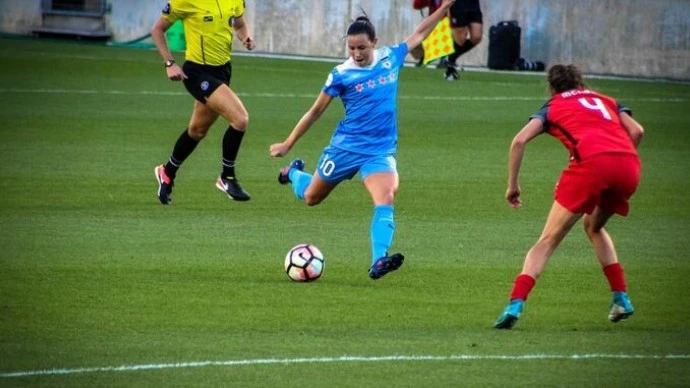
Get More Playing Time In Soccer
To earn more playing time in soccer, you need to focus on consistent effort, a positive mindset, and constant improvement. Set clear goals for yourself, whether it’s working on your fitness, mastering a specific skill, or improving your communication with teammates.
Embrace the fact that every training session is an opportunity to showcase your dedication and growth. Always give 100%, stay mentally tough, and adapt to feedback—be open to learning and finding areas where you can improve.
Remember, coaches reward players who put in the work both on and off the field, so stay patient, trust the process, and demonstrate why you deserve those minutes on the pitch. Keep pushing yourself to become better every day, and soon your playing time will increase as a natural result
In this video tutorial, I’ll show you how to get more playing time in soccer:
Let’s keep going…
How To Impress Your Coach in Soccer
To impress your coach and earn more playing time in soccer, you need to focus on several key areas. First, demonstrate your commitment through consistent effort in training.
Show up early, stay focused, and put in your best every single session. Coaches are looking for players who are reliable and dedicated, so consistently showcasing a positive attitude, work ethic, and willingness to learn can set you apart. A
You should also improve your fitness levels; being in better shape allows you to maintain intensity throughout the game, and stamina is an essential factor in getting playing time.
Be open to constructive feedback; showing that you can apply corrections and learn from your coach demonstrates a growth mindset, a trait that will naturally earn you more opportunities to play. This will increase your chances of getting noticed and getting more playing time in soccer.
In this video tutorial, I’ll show you how to impress your coach in soccer:
You’re getting better…
How To Get A Starting Position In Soccer
Earning a starting position in soccer demands a relentless pursuit of excellence. Begin by honing your technical skills, fitness, and soccer IQ through consistent practice and training. Be adaptable and willing to play different positions if required.
To secure a starting position and increase playing time in soccer, showing a deep understanding of the game and a commitment to both personal and team success is key. One effective way to make an impact is to focus on consistency, ensuring that your performance is reliable each time you play.
Coaches favor players who can deliver at a high level, no matter the game context or opposition. Strong mental toughness is important as well—coaches need players who can stay focused under pressure and make smart decisions when it matters most.
It’s essential to demonstrate that you’re capable of handling high-pressure moments with composure, helping to build trust with your coach. It doesn’t matter what you do in training, if you can’t put it together in games.
In this video tutorial, I’ll show you how to get a starting position in soccer:
Keep up the good work…
How To Get Playing Time In Soccer
Competition is fierce and opportunities are limited, securing more playing time can be a challenging endeavor. However, with the right mindset, dedication to improving your skills, and a commitment to teamwork and self-improvement, the path becomes clearer.
By actively seeking feedback, identifying areas for growth, and making the most of the opportunities you’re given, you can elevate your game and make yourself an indispensable asset to your team and coach.
The journey to more playing time is not just about individual success but contributing to the collective effort, embodying the spirit of the sport, and pursuing your passion for soccer.
Hopefully you found this article about how to get more playing time in soccer helpful.
(if so, keep reading)
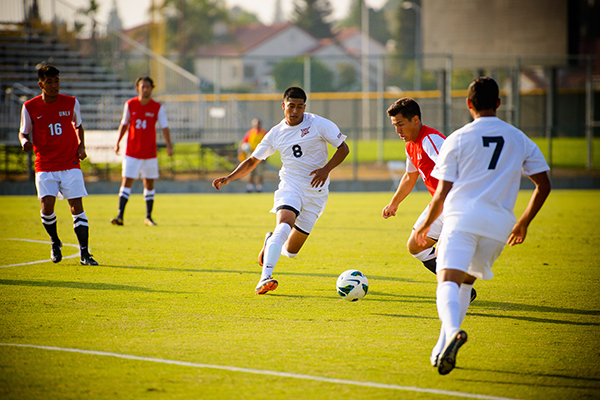
Common Questions
Here are some common questions related to how to get more playing time in soccer:
Should playing time be equal in soccer?
In soccer, playing time typically isn’t equal for all players because coaches base decisions on performance, skill level, and team needs. Factors such as tactics, player form, positions, and match objectives can influence how often a player is selected to start or sub in. It’s important to understand that competition is a natural part of sports, and while equal playing time might seem fair, the goal is to get the best team performance overall.
Should I talk to my coach about playing time?
Yes, it’s okay to have a conversation with your coach about playing time, but the approach matters. Rather than just asking why you’re not getting enough time, focus on asking for feedback on how you can improve. Approach your coach in a respectful and professional manner, and ask for advice on what specific skills, tactics, or areas you should focus on to earn more minutes on the field.
How to deal with lack of playing time?
Dealing with lack of playing time can be tough but staying positive is key. Use this time to improve your skills, and when training, show your full commitment. Analyze your game and learn what you can do better, whether it’s positioning, technical abilities, or mentality. Maintaining a positive attitude off the field and supporting your teammates also goes a long way in earning your coach’s trust.
How do you tell your coach you want more playing time?
When talking to your coach about more playing time, express your dedication and desire to contribute to the team’s success. Phrase your conversation as a request for constructive feedback: “I’ve been working hard and would appreciate any guidance on how I can improve to earn more minutes.” This shows initiative and signals your willingness to develop.
What to do if you’re not getting playing time in soccer?
If you’re not getting playing time, don’t be discouraged—use it as an opportunity to develop further. Focus on what you can control: improving your fitness, mastering game tactics, improving your weak areas, and staying mentally sharp. By continuing to work hard in training, you increase your chances of being selected more often. Additionally, let your coach know you’re open to feedback and ready to contribute in any way the team needs.
Ways to get more playing time in soccer?
To earn more playing time, focus on increasing your impact during practice by working on your technical skills, stamina, and understanding of the game. Consistency is crucial—make sure you’re performing well in all aspects consistently, and stay mentally focused. Communicating with your coach about areas to improve and maintaining a positive attitude can also help. The key is showing you’re committed, disciplined, and capable of being a reliable asset for the team when the opportunity arises.
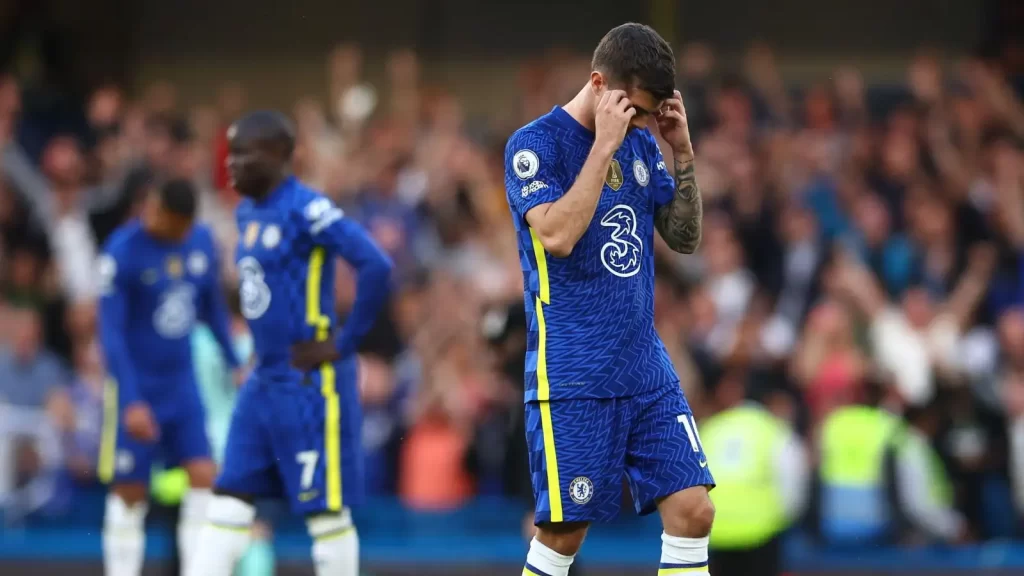
SOCCER PLAYERS
Want to become a better soccer player?
Watch this 3-minute video about discovering your true potential
Learn how to improve your skills, mindset, soccer IQ, and fitness—no matter your level. Start playing with confidence, earning respect, and impressing coaches today.
About Coach Dylan
I used to struggle with confidence in soccer, feeling slow, weak, and unmotivated. Coaches overlooked me, and friends made fun of my skills. At one point, I even quit.
But I decided to take control of my development. Through hard work, I transformed my game, earned league titles, awards, a college scholarship, and international caps.
Now, I share my lessons and help others improve through my YouTube channel (1/2 million subscribers), soccer coaching and personal training.
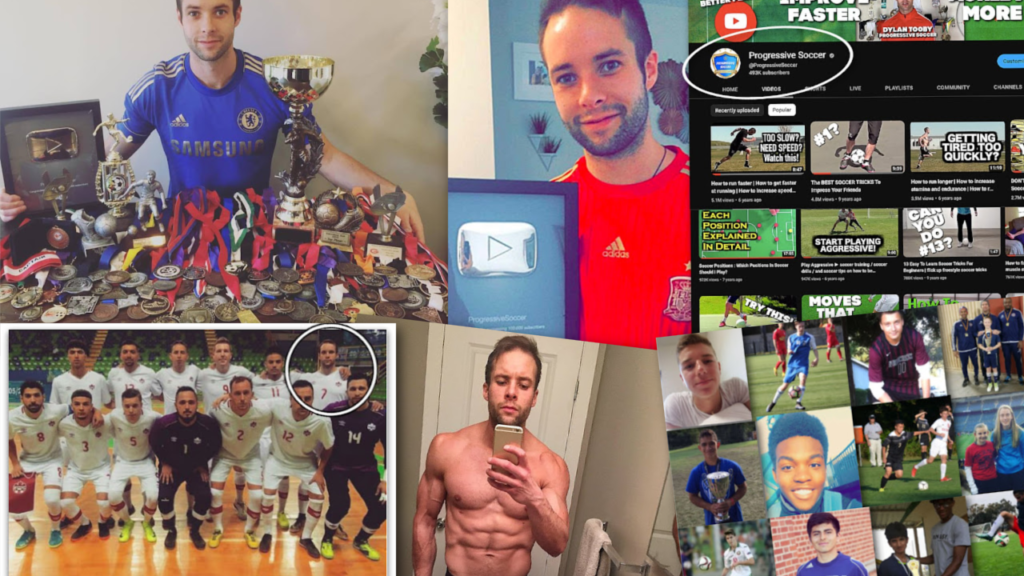
How To Play Soccer Better
Struggling to make progress in soccer or stay organized with your training?
The Soccer Success Planner will help you stay focused, motivated, and increase your chances of achieving your goals in soccer.
Success doesn’t happen accidentally. Use it to set clear goals, create a plan of action, and take control of your future. Learn more about the Soccer Success Planner.
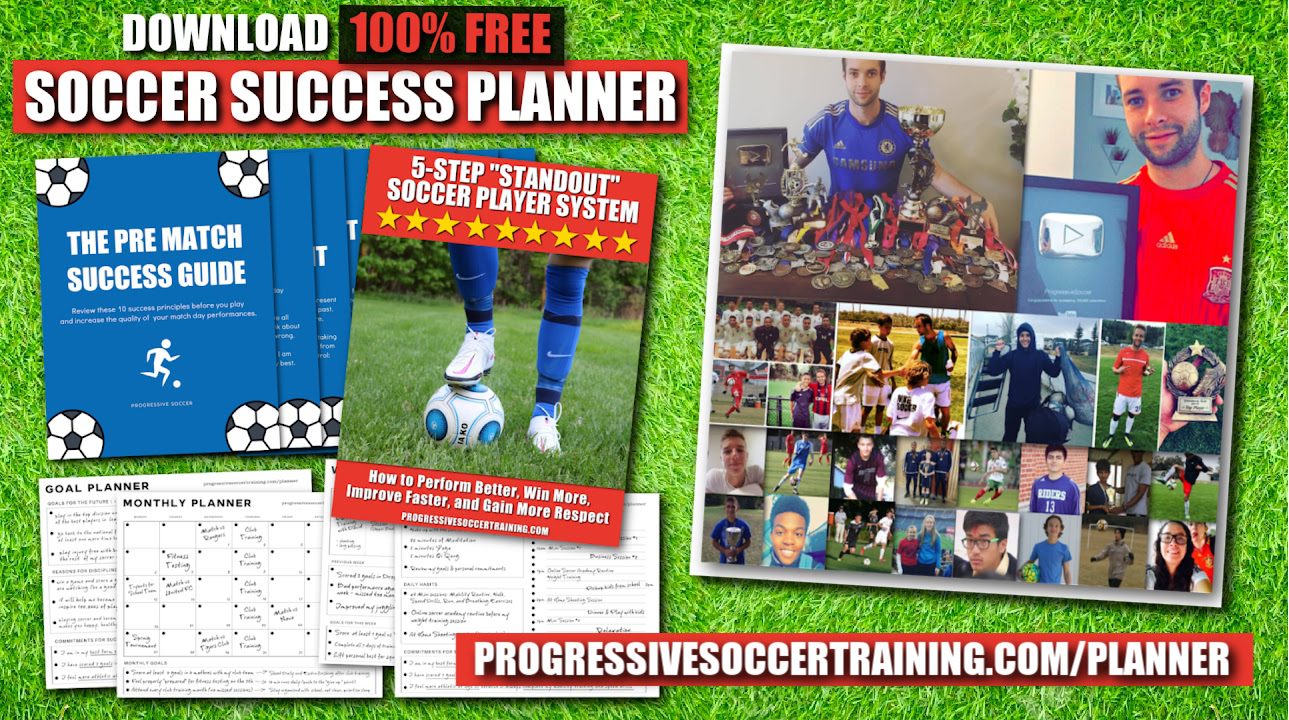
How To Become A Better Soccer Player
Struggling to improve in soccer or unsure how to train effectively? Want to stand out and earn respect from teammates and coaches?
The Online Soccer Academy will get you better results in less time.
Thousands of players have already transformed their game in just 60 days. Learn more about how the online soccer academy.

Related Posts
Here are some related posts to help you gain more knowledge and helpful advice:
How to become a better soccer player
Best Soccer Videos
How To Juggle A Soccer Ball 100 times
Wishing You Success In Soccer
Coach Dylan
Progressive Soccer
Thank you for reading this article:
How To Get More Playing Time In Soccer – Complete Guide (2025)
